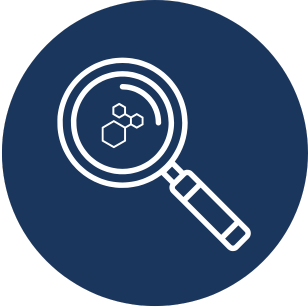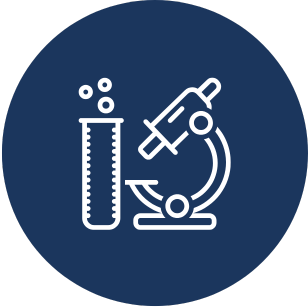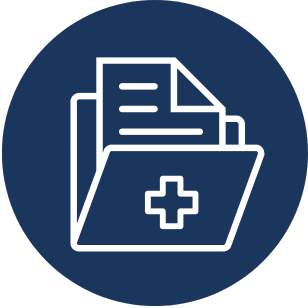Why It Matters
The speed of science is accelerating to address the most significant health concerns facing the world today. At SCHARP, we recognize the importance of data and analytical rigor to provide the insights researchers need to identify and pursue viable solutions. This work requires seamless collaboration, data integrity and regulatory compliance. SCHARP is committed to serving as trusted partners and advisors that researchers can rely on to move science forward.

250+ Clinical trials

400+ Clinical Sites in 30+ Countries

4 million Case Report Forms

20 million Individual Specimen Records

25 million Individual Assay Records

Rapid Response to Emerging Diseases
Three Decades of Experience
Established at Fred Hutch more than 30 years ago, SCHARP has grown to manage over 100 phase 1 – 3 clinical trials, with more than 30 of those actively enrolling or following participants. These studies are being conducted at over 400 clinical sites in more than 30 countries.
With a focus on meticulous data collection and cleaning, strict compliance with national and international regulations, secure data storage and maintaining data integrity, SCHARP applies its decades of experience with researchers and institutions in the pursuit to develop other infectious disease vaccines and prevention methods.

Rapidly Responding to the Call
During the COVID-19 pandemic, SCHARP partnered with researchers around the world, the pharmaceutical industry, the National Institutes of Health (NIH) and the U.S. Department of Health and Human Services (HHS) to support the rapid response to develop efficacious vaccines that adhered to the highest data standards and regulatory compliance.
Specifically, SCHARP implemented an integrated approach to establish and support the conduct of phase 3 randomized clinical trials that led to the rapid emergency use authorization and approval of several COVID-19 vaccines.

Schedule a Consultation
Do you need a data management partner? Let’s meet and discuss your project. Whether you need full-scale data management and regulatory compliance for a clinical trial, are only in need of specific support services, or are unsure what might be right for you, we offer individualized guidance and support and can help you reach your goals.
Landmark Studies Leading to Scientific Breakthrough
SCHARP played an instrumental role in several landmark studies over the years. In 2011 a study published in the New England Journal of Medicine showed that HIV Treatment as Prevention (TaP) with the early initiation of antiretroviral therapy reduced rates of transmission of HIV-1 by 96%. This discovery was named by Science as the Breakthrough of the Year.
In 2021 and 2022, two studies, the first published in the New England Journal of Medicine and the second in the Lancet, demonstrated that long-acting injectable cabotegravir is safe and effective in preventing HIV-1 in cisgender men, transgender women, and women. The incident rate of HIV acquisition was reduced by 66 to 88% compared to a daily oral preexposure prophylaxis (PrEP) pill.
In 2021 a pair of studies published in the New England Journal of Medicine testing whether a broadly neutralizing antibody (bnAb) immune-based intervention can be used to prevent HIV-1 acquisition showed that the chosen bnAb VRCO1did not prevent overall HIV-1 acquisition than placebo, but the analyses of VRC01-sensitive HIV-1 isolates provided proof-of-concept that bnAb prophylaxis can be effective.
Researcher FAQ
SCHARP supports a comprehensive range of infectious disease clinical trials, covering every stage of the research and development lifecycle — from preclinical (phase 0) studies through phase 3 trials. We also provide specialized support for observational studies, hybrid designs and pilot or vanguard studies. These small-scale, preliminary trials assess the feasibility of participant recruitment and retention, the feasibility and acceptability of interventions, and the incidence of infectious diseases in targeted populations.
CDISC, an international organization that defines data standards for clinical research, has various data models that serve different operational purposes. CDISC Standards are now required for regulatory submissions to the U.S. Food and Drug Administration, and they must be considered at all stages of the clinical study lifecycle – from the design of compliant CRFs through the specification of the final data displays.
Yes. The three that are most relevant to the work done at SCHARP are Clinical Data Acquisition Standards Harmonization (CDASH), Study Data Tabulation Model (SDTM) and Analysis Data Model (ADaM).
SCHARP designs study CRFs using CDASH principles with the future production of SDTM and ADaM in mind. SCHARP routinely generates a selection of SDTM- and ADaM-aligned datasets as needed for various operational functions throughout the course of a trial. The use of these CDISC-aligned datasets permits SCHARP to manage data and provide standard operational reporting more efficiently and effectively over the course of the ongoing trial. SCHARP tailors the production and use of CDISC-compliant datasets and supporting materials to meet the unique needs of each individual trial, but does not routinely produce a fully-compliant, submission-ready package for every study.
SCHARP can provide the CDASH-aligned CRF page level datasets or any SDTM+/- domains or ADaM+/- datasets and the associated metadata that we routinely generate for trial operations or interim or final reporting to a sponsor or partner as a supplement for them to complete any submission-ready packages themselves or through a contract with a third party.
For many of the studies, SCHARP uses Medidata Rave for data collection and management, which is 21 CFR Part 11 compliant. If a study has a survey component, and specifically needs audio computer-assisted self-interviews, SCHARP uses REDCap Cloud, which is also 21 CFR Part 11 compliant.
For non-registrational studies and studies that will not be part of a submission for regulatory purposes, SCHARP may use systems that are not 21 CFR Part 11 compliant, such as REDCap.
The quality we bring to researchers is established and a recognized value. We leverage our extensive clinical trial experience to tailor the appropriate level of rigor. For instance, studies in our Phase 1 Discovery Medicine portfolio are designed to have lower regulatory overhead compared to a phase 3 study that is intended for regulatory submission to the FDA. This customized approach improves SCHARP’s cost-effectiveness and ability to turn deliverables around on a faster timeline.

Contact SCHARP
If you do not need to schedule a consultation, but have questions, contact Piilani Pang, Senior Business Manager, SCHARP.